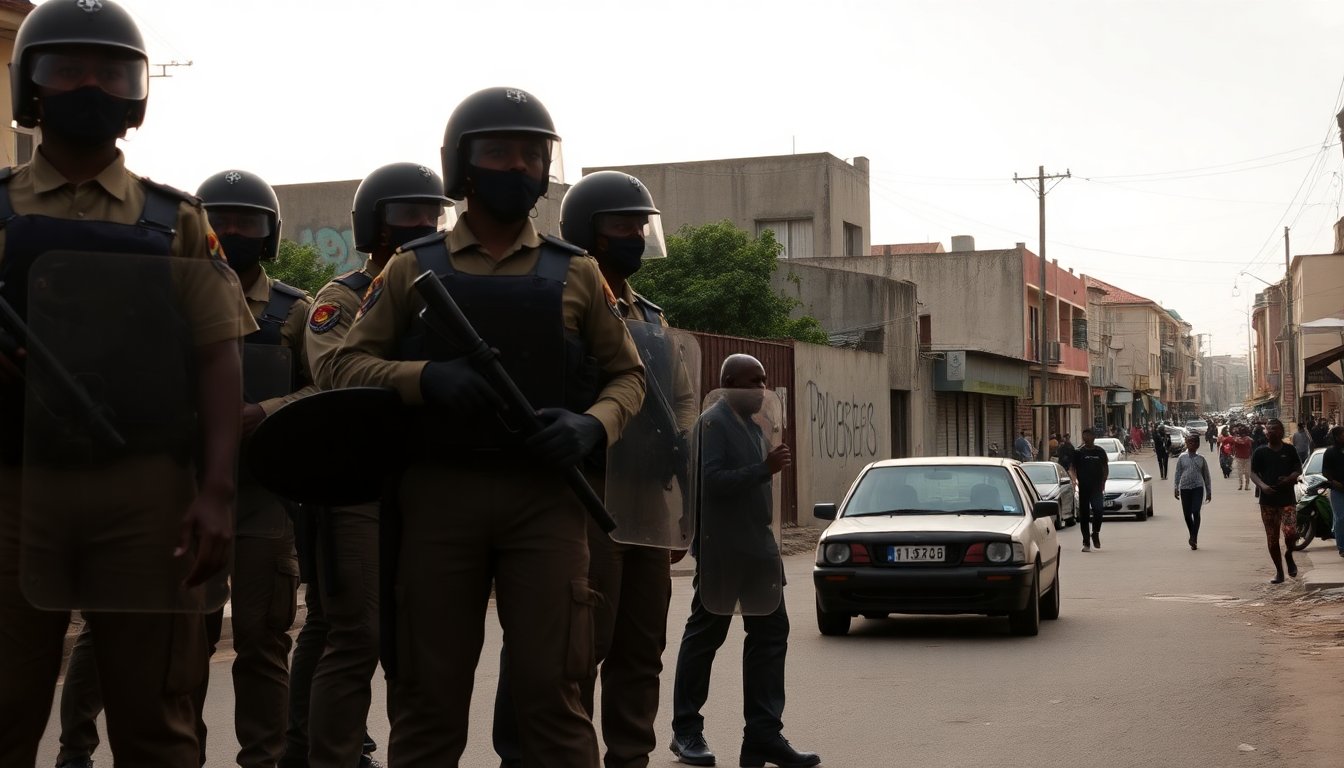Table of Contents
As the presidential elections approach in Ivory Coast, the atmosphere is thick with anxiety and unrest. The bustling streets of Abidjan, particularly in districts like Yopougon, usually alive with activity, have grown quieter as residents rush home under the shadow of police presence. The government has deployed around 44,000 security personnel nationwide, claiming this is to ensure a peaceful voting process. However, many Ivorians feel anything but secure.
The campaign season has been marked by significant turmoil, with opposition leaders barred from participating in the elections. Incumbent President Alassane Ouattara, who has been in power since 2011, is seeking a fourth term, a move that many view as undermining democratic principles.
The climate of fear and unrest
In the lead-up to the elections, fear permeates daily life for many Ivorians. Jean, a civil servant in his forties, shared his experience of living in trepidation: “We hardly venture out before sunrise anymore. The atmosphere is charged, and everyone seems concerned about the potential for violence.”
This sense of insecurity is not unfounded; past elections in Ivory Coast have been marred by violence, including a devastating civil war that claimed thousands of lives. The current political landscape has raised alarms as the government’s recent actions, including the exclusion of major opposition figures from the electoral process, have sparked protests and unrest across the nation.
Protests and government response
In June, tensions escalated when the electoral commission announced the disqualification of prominent opposition candidates, including former president Laurent Gbagbo and acclaimed banker Tidjane Thiam. These exclusions were seen by many as politically motivated, leading to widespread protests and a crackdown by security forces. In October, as demonstrations intensified, the government imposed a ban on public gatherings, further escalating the situation.
The government’s response to dissent has been severe, with reports indicating that over 700 individuals were arrested during protests, many of whom remain imprisoned under charges labeled as “terrorism.” Human rights organizations like Amnesty International have condemned these actions, asserting that peaceful assembly is a fundamental right.
Opposition strategies in a hostile environment
In light of these challenges, opposition leaders have called for continued protests as a means of expressing discontent with the electoral process. Bredoumy Soumaila, a spokesperson for an opposition party, articulated the frustrations of many: “The elections are flawed and rigged; we must voice our dissent.” He highlighted that numerous opposition supporters are incarcerated, with many others forced into hiding or exile.
Amid these developments, activist Pulcherie Gbalet has emerged as a prominent figure in the resistance. Having faced imprisonment in the past for her outspoken criticism of the government, she now calls on Ivorians to engage in a widespread shutdown of the economy as a form of protest. “If we don’t disrupt the status quo, our voices will continue to be ignored,” she urged in a recent message.
Public sentiment and future implications
Despite calls for mass protests, not all Ivorians agree on the approach. Some citizens express a desire for negotiation rather than confrontation. Adrienne Amani, a local resident, reflected, “We need to find common ground. If our leaders cannot come together peacefully, how can we expect the populace to be at ease?” This sentiment captures the division within the country regarding the best path forward.
As election day nears, the streets of Abidjan reveal a city caught between hope and despair. While some businesses remain open, many others have closed in anticipation of potential violence. The specter of past electoral conflicts looms large, with reports indicating that a number of citizens have already fled to neighboring Ghana as a precaution.
The campaign season has been marked by significant turmoil, with opposition leaders barred from participating in the elections. Incumbent President Alassane Ouattara, who has been in power since 2011, is seeking a fourth term, a move that many view as undermining democratic principles.0


